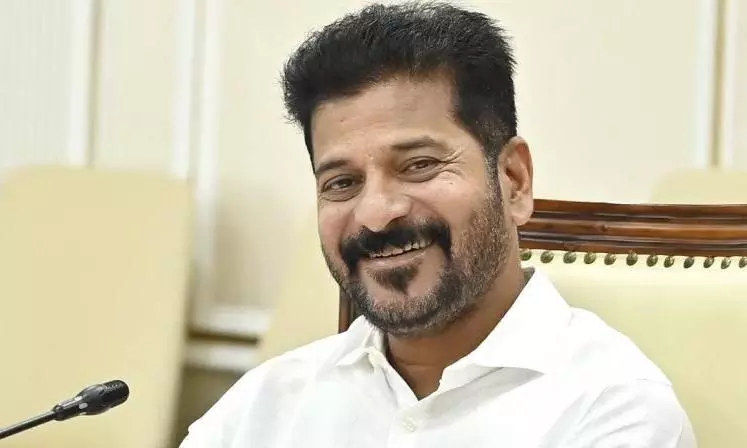‘Revanth effects massive transfers of IAS and IPS officers’. This has become a frequent headline in Telangana media since the Congress government took over the state’s reins last December. Repeated transfers and postings of senior bureaucrats, from Principal Secretaries to district-level officers like Collectors and Superintendents of Police, have become the highlight of Revanth Reddy’s Chief Ministership. The only other activity that came even remotely close in priority for the Chief Minister over his six-month tenure was luring Bharat Rashtra Samithi (BRS) legislators into Congress.
It is common practice to effect some changes in the senior bureaucracy when governments change: it happens in any organisation, not just in the government. However, these frequent changes in the postings of senior bureaucrats bring to light a disturbing pattern. The Revanth government transferred some officers repeatedly over the past six months. Take, for example, the case of Ronald Rose, an IAS officer. Early this month, Revanth chose to post him as the Commissioner of GHMC. Less than three weeks later, the government transferred him again and posted him as the Secretary of Energy.
Another example is that of AV Ranganath, an IPS officer. Revanth initially posted him as the Additional Commissioner of Police-Crimes and SIT, then as the Inspector General of Hyderabad’s Multi-Zone-I. This week, he was transferred again and posted as the Commissioner of Enforcement, Vigilance and Disaster Management of the GHMC (Greater Hyderabad Municipal Corporation).
While Ronald Rose and AV Ranganath are only two examples, many more officers were transferred repeatedly over the past six months. And there is no guarantee that this week’s mass transfers will be the last in the series for at least some time. It is evident that these rapid and repeated changes disrupt the functioning of crucial departments and raise questions about the government’s decision-making process. One can only surmise the reasons.
It could be that Revanth Reddy, who has never had any experience as an administrator, is fumbling at the job. Though he has enough experience as a legislator-as a Member of Parliament (MP), Member of Legislative Assembly (MLA), and Member of Legislative Council (MLC)-the current Chief Minister has no prior experience in an executive role in administration, be at the central, state or district level.
Additionally, the Chief Minister, surrounded by heavyweight cabinet ministers, could be under constant pressure to honour the ministers’ personal preferences. The Chief Minister might have initially thought that it was his prerogative to restructure his administration the way he wanted and made the postings accordingly. Given the role of group politics and the upper hand of the high command in Congress, the constant shuffling of bureaucrats could be the result of his senior colleagues asserting themselves.
Given the state exchequer’s financial condition and the Congress’ inability to deliver on either the Six Guarantees it promised to come to power or on development, it is even plausible that Revanth sees repeated bureaucratic shuffling as a shrewd tactic to divert the media’s and public’s attention from his government’s failures. If that were the case, the Chief Minister should realise it is not working anymore.
More importantly, senior Congress leaders, including Ministers, have publicly accused many bureaucrats of working contrary to the government’s agenda. The Chief Minister, too, had warned senior bureaucrats that he would not suffer lazy officials. The repeated transfers could also be an attempt to warn bureaucrats that they better acknowledge there is a new boss in town. Again, if this is the case, it reflects inexperience and lack of gravitas and will only add to the bureaucrats’ distrust, making the problem even more acute.
Another notable and vital explanation could be that the new government is adversely affected by the earlier Chief Minister Chandrasekhar Rao’s (KCR’s) disastrous approach to bureaucracy and is struggling to come to terms with it. It is indisputable that Rao did his best to destroy the impartiality of the state’s steel frame. The Kaleswaram disaster, mass-scale illegal phone tapping, and tens of thousands of contempt of court cases pending in the Telangana High Court against senior officers are all examples of bureaucracy turning unprofessional and doing things at his bidding. His methods included manipulating cadre allocations, large-scale appointments of retired officers to critical positions and giving preferred officers long tenures in plum positions. He erased the healthy separation between bureaucracy and politics, even guaranteeing favourite officials a political future if needed.
Whatever the reason, the constant shuffling of officials, especially senior officers who are the lynchpins of effective governance, does irreparable damage to law and order, development, and welfare administration. Ineffective, inefficient, and rudderless governance will aggravate the sufferings and frustration of the people who already feel they have been taken for a ride by Congress with its false poll promises. The CM should take note.
Revanth plays musical chairs with bureaucracy




